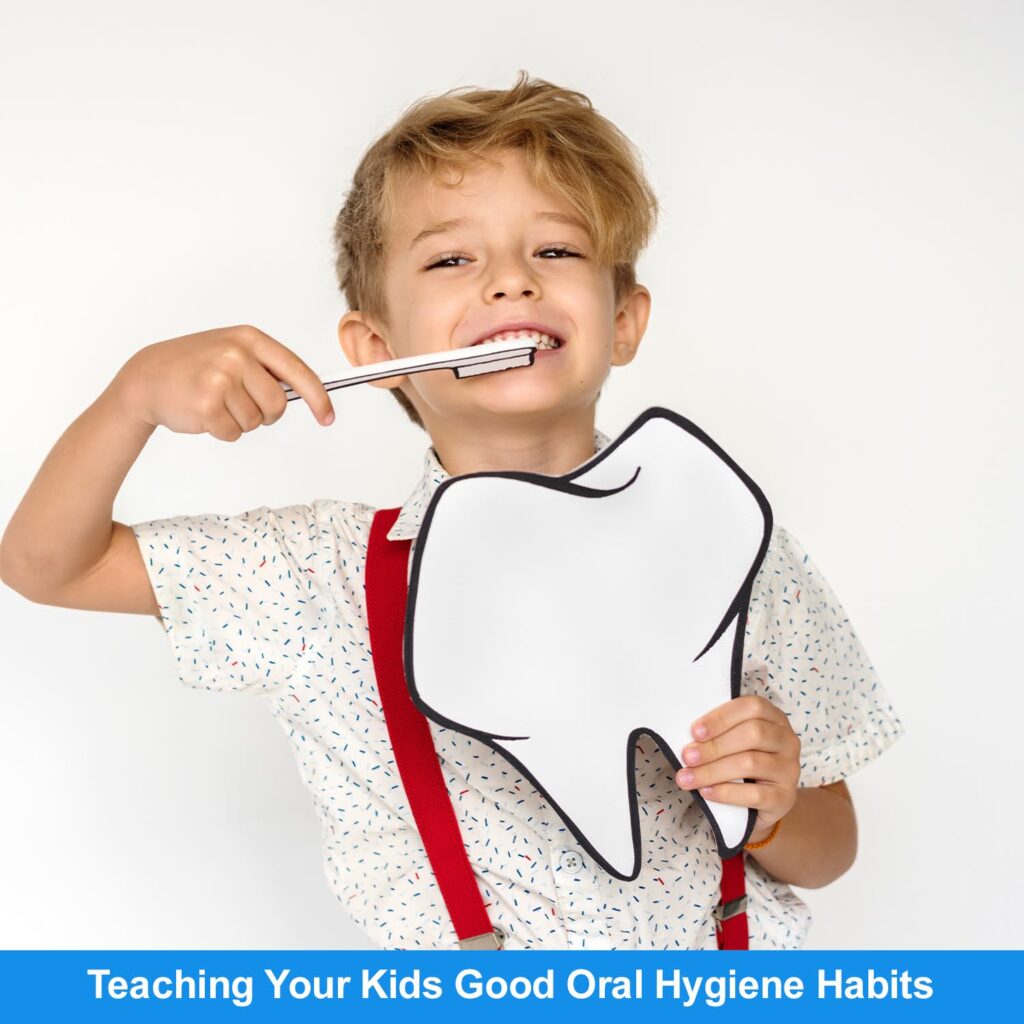
Introduction
Helping children learn good oral hygiene habits early is one of the best ways to ensure they maintain healthy teeth and gums throughout their lives. Teaching your kids about oral hygiene isn’t just about brushing and flossing; it’s about building habits that support overall health. Kids who learn early develop routines that last into adulthood, reducing risks for cavities, gum disease, and other dental issues.
In this guide, we’ll cover effective techniques and creative ways to make oral hygiene fun and engaging for children. Through small steps, you can help your child build strong, healthy teeth and a lifelong appreciation for a bright smile.
Summary
1. Why Oral Hygiene Matters: Teaching Kids the Importance of Healthy Teeth
2. Start Early: Introducing Oral Hygiene in the Toddler Years
3. Make Brushing Fun: Turning Oral Hygiene into an Enjoyable Routine
4. Lead by Example: Show Them How It’s Done
5. Teach the Techniques: Proper Brushing and Flossing for Little Hands
6. The Role of Diet: Choosing Foods that Support Oral Health
7. Regular Dental Visits: Making the Dentist a Friend, Not a Fear
8. Celebrate Milestones: Rewards for Consistency and Effort
1. Why Oral Hygiene Matters: Teaching Kids the Importance of Healthy Teeth
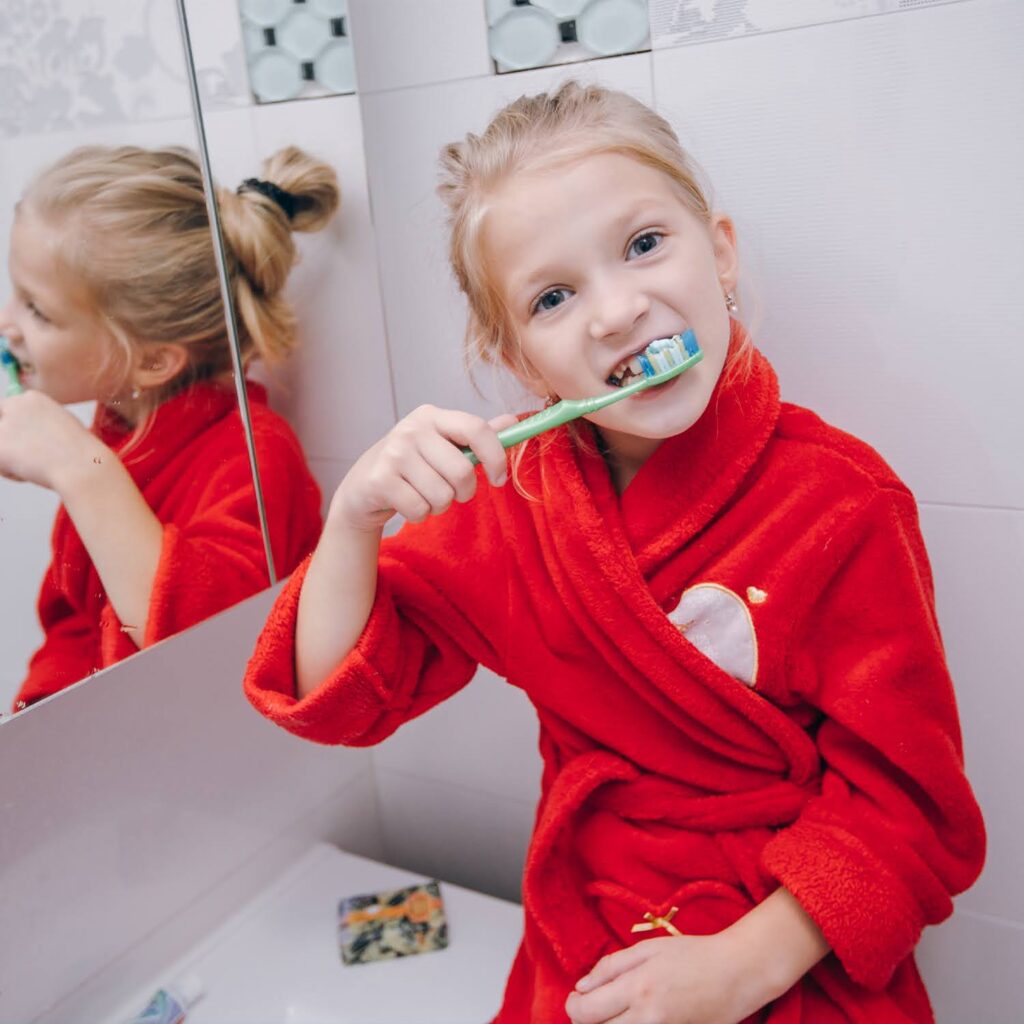
Children often don’t understand why oral hygiene is essential. Teaching them the value of healthy teeth and gums from a young age helps establish motivation. Healthy teeth enable kids to enjoy their favorite foods, speak clearly, and express themselves confidently. Moreover, avoiding dental issues can prevent pain and discomfort, making oral care a necessity rather than a chore.
Explaining the “why” behind good habits can make a significant difference. For instance, tell your kids that brushing removes “sugar bugs” or germs that might harm their teeth. Use language that is simple yet engaging to help them understand the benefits of taking care of their teeth.
2. Start Early: Introducing Oral Hygiene in the Toddler Years
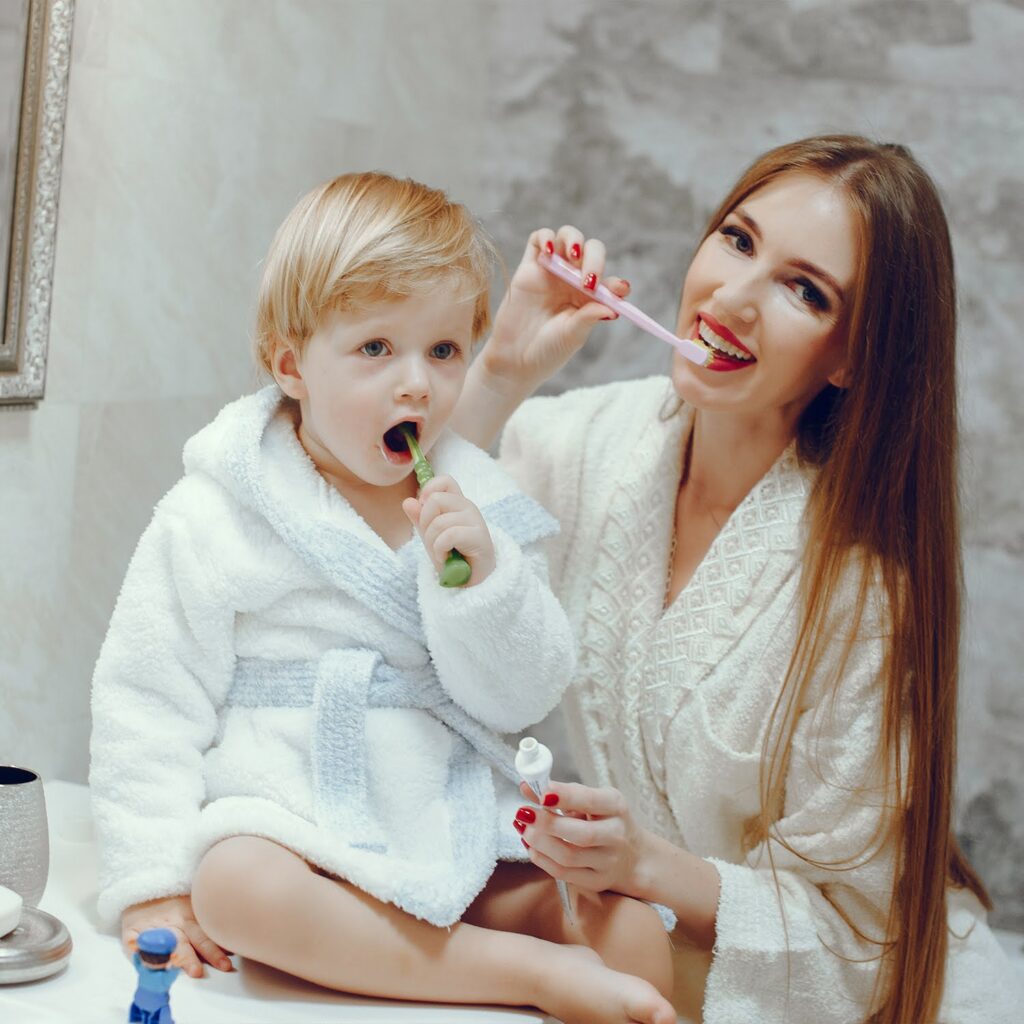
Oral hygiene should begin as soon as your baby has their first tooth. Use a soft, baby-friendly toothbrush and a small amount of fluoride toothpaste. At this stage, you’re not only cleaning their teeth but also introducing them to the idea of oral care.
As they grow, make brushing and flossing a fun daily ritual. Let them hold their toothbrush, and consider brushing together to show that it’s a family activity. Involving them from an early age creates a sense of normalcy around oral care, making it easier to transition to independent brushing later.
3. Make Brushing Fun: Turning Oral Hygiene into an Enjoyable Routine
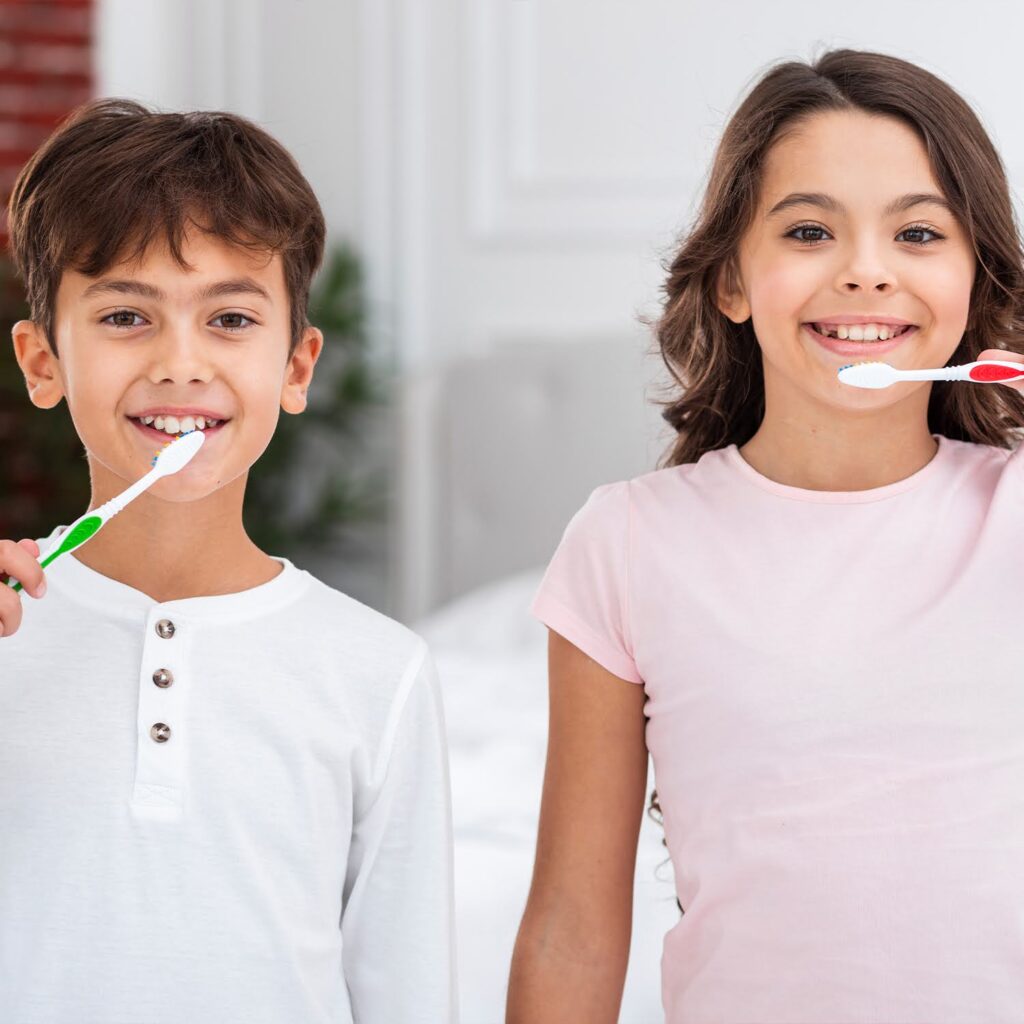
Brushing doesn’t have to be boring! Make it fun with creative strategies like using toothbrushes in their favorite colors, electric toothbrushes with fun sounds, or toothpaste with flavors they enjoy. Set a timer or play a two-minute song to make brushing feel like a short, fun activity rather than a task.
You could also turn brushing into a game where they get to “beat the clock” or chase away imaginary germs. By making the experience enjoyable, kids are more likely to view brushing as a fun part of their day instead of a chore they want to avoid.
4. Lead by Example: Show Them How It’s Done
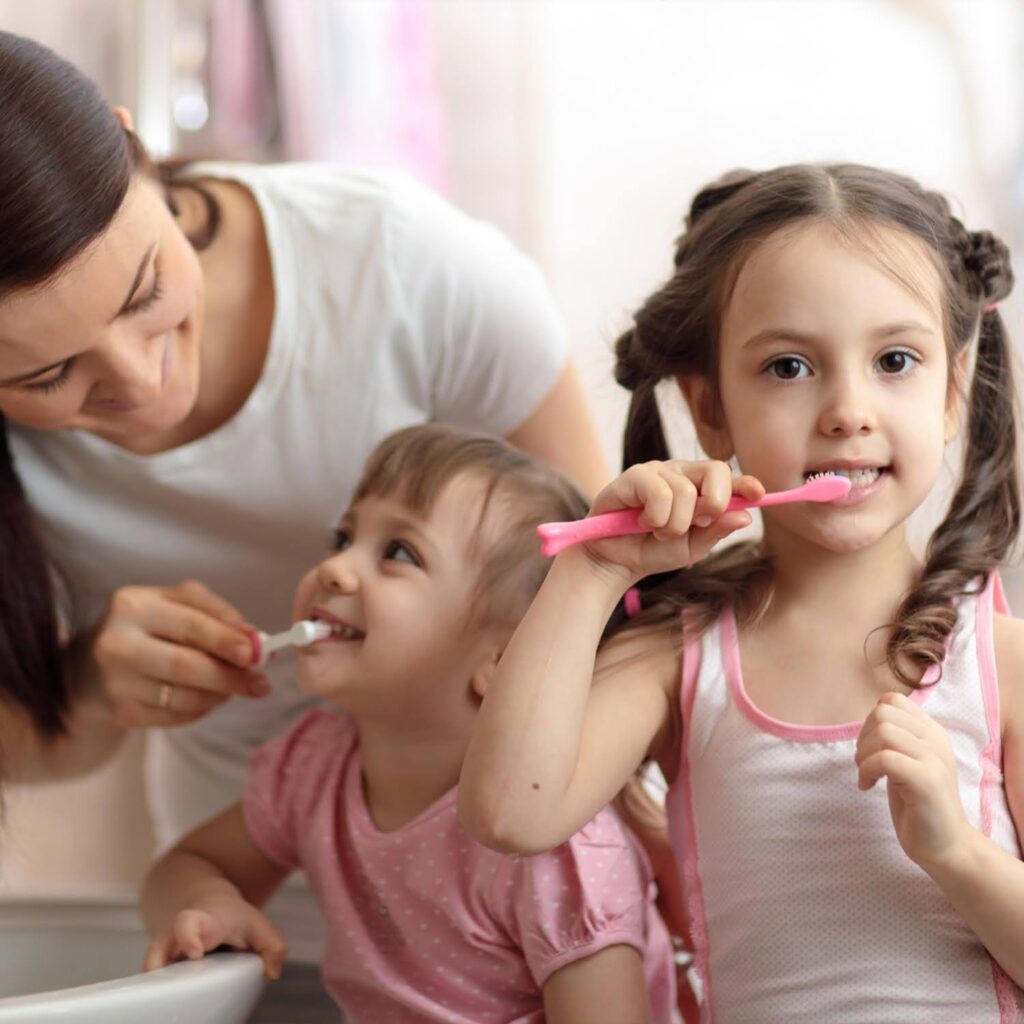
Children learn most effectively by observing their parents, so lead by example and practice good oral hygiene habits yourself. Make a point to brush and floss with them so they see that it’s something everyone does, not just a “kid rule.
You can also make brushing time a family activity. Brush together in the morning and before bed to make it feel like a team effort. Showing enthusiasm for oral care helps your child see that it’s an essential part of daily life, just like getting dressed or eating breakfast.
5. Teach the Techniques: Proper Brushing and Flossing for Little Hands

For kids, learning the proper techniques is crucial. Show them how to brush every part of their teeth—the front, back, and chewing surfaces. Show them how to move the toothbrush in small, gentle circles. Supervise until they can do it independently, usually around age six to seven.
Flossing can be tricky for little hands, so start by helping them. Once they’re ready, use floss picks designed for kids, as they’re easier to hold and maneuver. Teaching the right techniques not only ensures a better clean but also builds confidence in their ability to care for their teeth.
6. The Role of Diet: Choosing Foods that Support Oral Health

Diet plays a significant role in oral hygiene. Teach your kids to choose foods that are good for their teeth, like fruits, vegetables, cheese, and nuts. These foods help neutralize acid in the mouth and provide nutrients for strong teeth.
Reduce sugary snacks and drinks, as they can cause cavities. Try explaining that sugar feeds the “bad guys” in their mouth who want to make holes in their teeth. By understanding how food affects their oral health, children become more conscious of making good choices.
7. Regular Dental Visits: Making the Dentist a Friend, Not a Fear
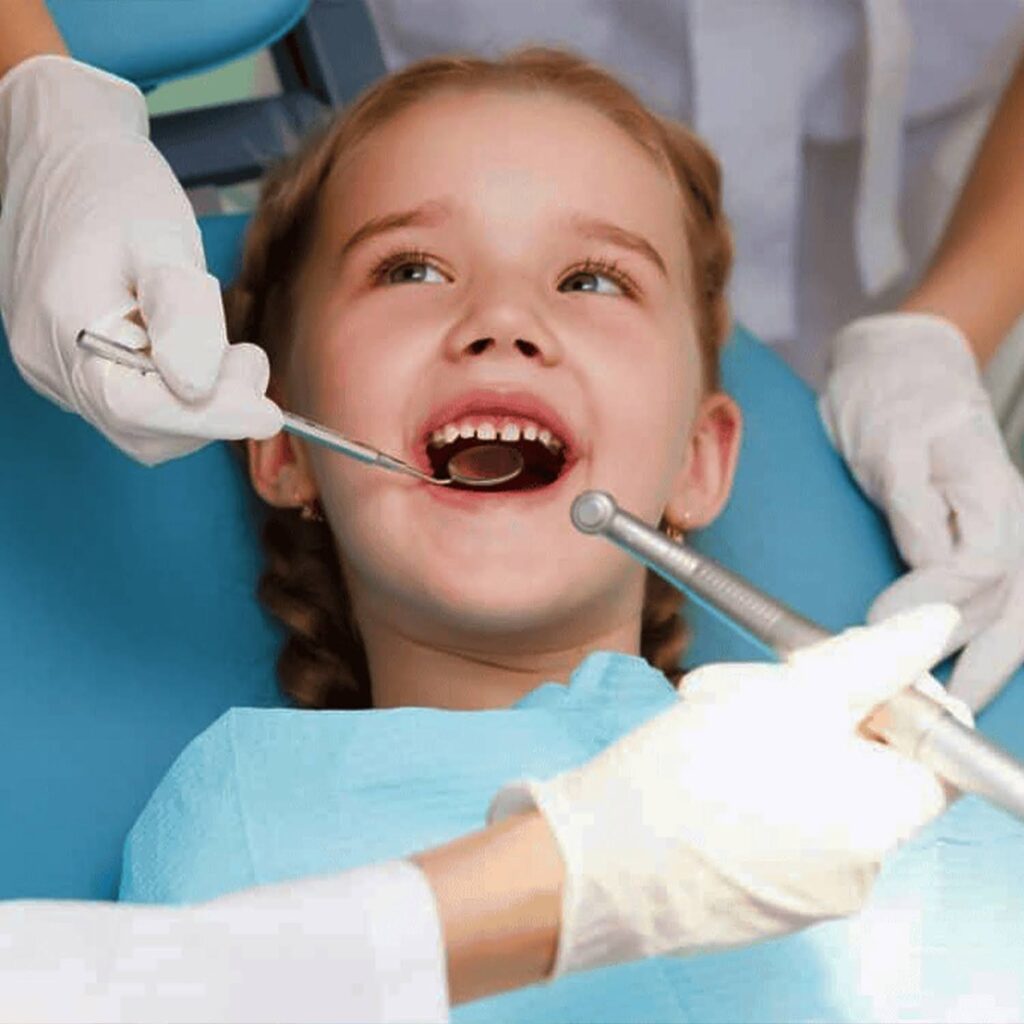
Make regular dental visits a positive experience instead of something to fear. Many kids feel anxious about the dentist, so it’s important to frame visits as friendly check-ups where the dentist “counts their teeth” or “helps keep their smile bright.
Prepare them by explaining what to expect and why the dentist’s office is a safe, helpful place. Many dental offices offer special prizes or fun games for kids to make them feel more comfortable. Consistent, pleasant experiences help remove the fear and make dental visits part of their normal routine.
8. Celebrate Milestones: Rewards for Consistency and Effort
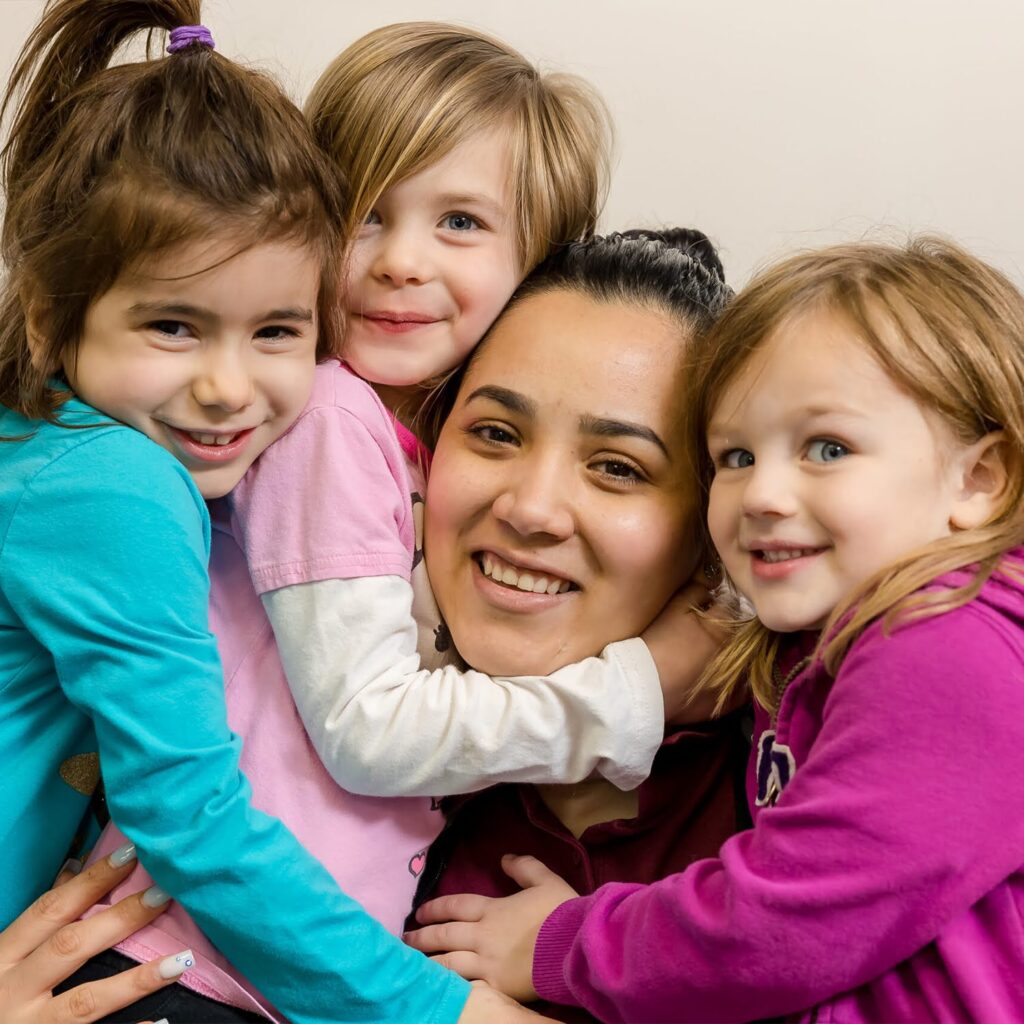
Recognizing and celebrating small accomplishments can motivate kids to keep up with their oral hygiene. Encourage a goal, such as brushing twice daily for a full week, and reward their effort with a sticker or a small treat. Creating a simple rewards chart can also encourage consistency.
Celebrations don’t need to be elaborate—a small reward can have a big impact. The positive reinforcement helps children associate good oral hygiene with positive feelings, reinforcing their motivation to care for their teeth.
FAQs
Q1. At what age should I begin brushing my child’s teeth?
A.1. Start brushing as soon as their first tooth appears. Use a soft brush and a tiny dab of toothpaste.
Q.2. How often should children brush their teeth?
A.2. Children should brush their teeth twice a day, morning and night, for at least two minutes.
Q.3. What are some ways to make brushing fun for my child?
A.3. Use fun toothbrushes, play songs, or create games around brushing time to keep them engaged.
Q.4. Is flossing necessary for kids?
A.4. Yes, flossing helps remove plaque between teeth. Start when two teeth touch and supervise until they learn.
Q.5. How can I prepare my child for the dentist?
A.5. Explain what to expect, make it sound exciting, and assure them the dentist is there to help them stay healthy.
Conclusion
By teaching your kids good oral hygiene habits, you’re setting them up for a lifetime of healthy smiles. Starting early, making brushing fun, and being a role model are key steps to making oral care a natural part of their daily routine. With your support, your kids will understand that taking care of their teeth isn’t just a responsibility; it’s something they can be proud of.









